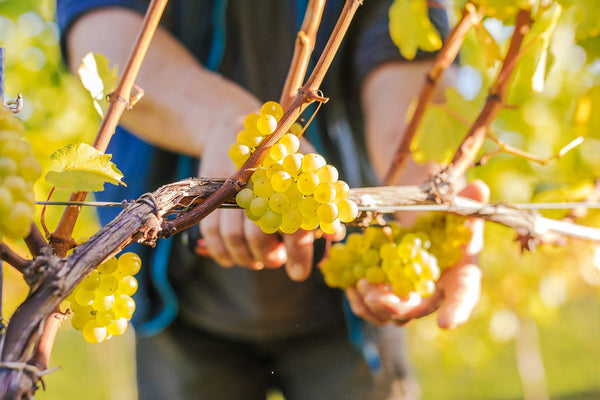Chardonnay in the UK 🤘
Aug 04, 2021
Chardonnay is a grape that has stood the test of time. From the wood chipped Australian oak bombs of old, to the mineral, racy and subtle wines of Chablis. The reason the grape has stuck around for so long is its versatility and resilience.
Hailing originally from Burgundy, Chardonnay vines can now be found in the majority of wine producing countries.
The secret to Chardonnay’s success is its ability to survive a range of climates and adaptability to different winemaking techniques. Oak gives it the vanilla flavours, and that unmistakable creamy feel comes from ageing on the lees. Warm weather brings out flavours of melon, whilst a cooler climate results in a lime peel note.
This brings us to the rising star in the world of Chardonnay - England. Historically, English grapes have always had high acidity due to the cooler temperatures and so the majority of the wines made here are fizzy.
Why? In short, to make a wine sparkling you have to ferment it twice and this has proven the best way to get around our naturally high acid.
To start, acidic base wine is To start, acidic base wine is made just as any normal wine, but with a shorter fermentation, sugar and yeast are added again (liqueur de tirage) which re-ferments, produces CO2 and gives bubbles to the wine.
However, with the UK climate getting that little bit warmer, the Chardonnay grapes here are benefiting from longer ripening periods. This means more sugar in grapes and in turn, lower acidity, allowing English Chardonnays to earn their promotion from sparkling wine-only status to still wines too.
Higher temperatures mean bounteous vineyards and new opportunities for previously unsuccessful wines to become successful and finally flourish.
The vineyard site at Heppington is particularly suited for growing the sparkling wine varieties through a combination of its height above sea level, the gentle southern slope and its geological composition, the 'terroir', which is identical to the champagne region. Apples and, latterly, blackcurrants had previously been successfully grown on the land, which is sheltered from prevailing winds. Ironically, so productive has the land been that the main challenge is controlling the vigour to assist the ripening of the grapes. But, as the average temperatures of summers in the south of England rise it is not only sparkling wine which can be successfully grown.
The Chardonnay at Heppington includes Burgundy clones which can be used both for sparkling and still wines and from the 2020 harvest a still Chardonnay has been produced which compares favourably to Chablis.'
Check out our 2020 Chardonnay here, and sign up to our newsletter to be kept up to date with our launches, offers and behind the scenes stories from the vineyard.



